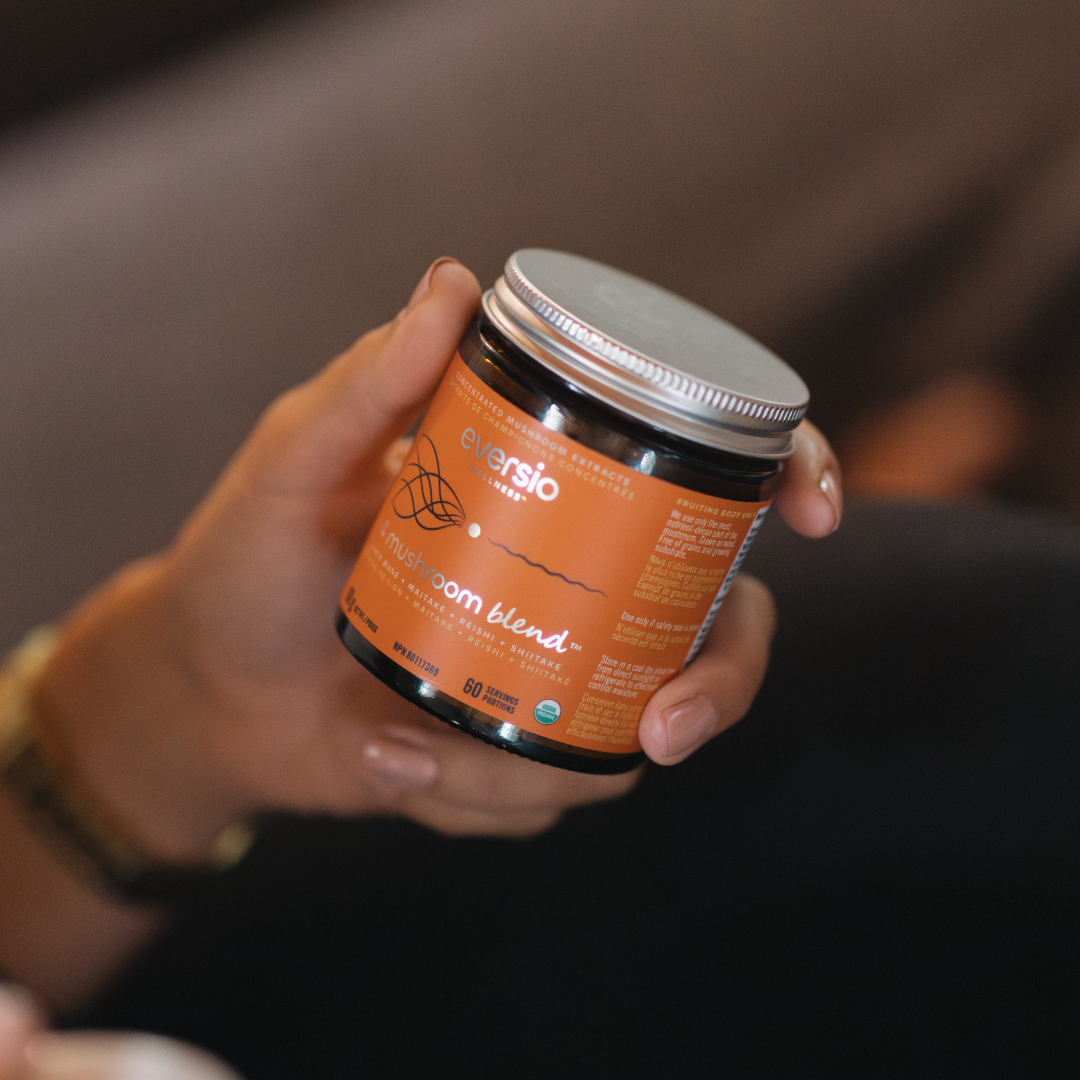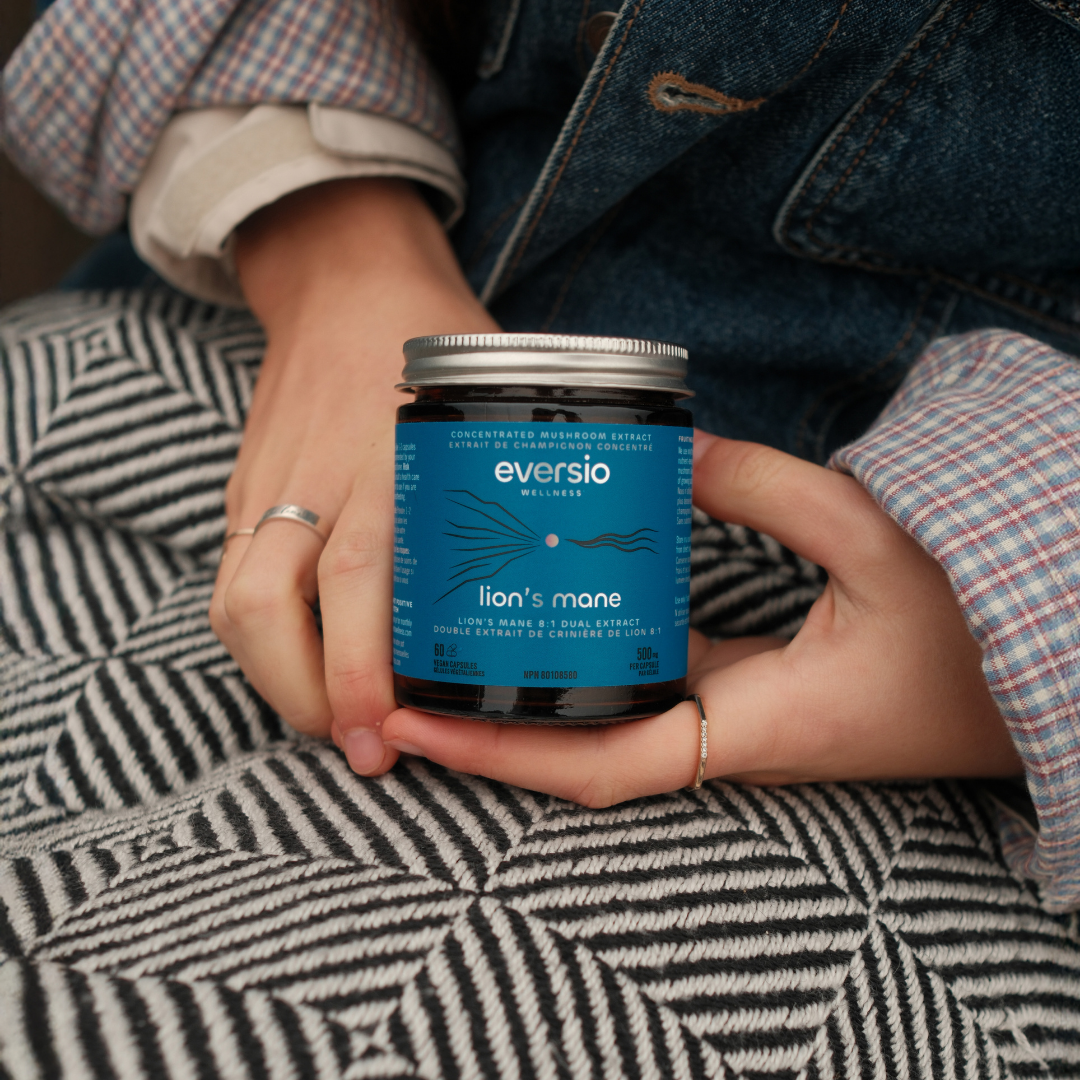The Science Behind Cordyceps and Respiratory Health
If you're searching for natural lung support, cordyceps benefits lungs in several scientifically-validated ways:
- Improves oxygen utilization by increasing ATP production in cells
- Reduces airway inflammation through modulation of cytokine responses
- Supports bronchodilation and helps relax airway smooth muscle
- Improves exercise capacity and VO2 max during strenuous activity
- Protects against oxidative damage in lung tissue
- May help with airway remodeling in conditions like COPD
- Shows potential as an adjunct therapy for asthma and bronchitis
Cordyceps mushrooms have been treasured in traditional Chinese medicine for centuries as "lung guardians." These unique fungi have gained attention in modern research for their remarkable ability to support respiratory function through multiple mechanisms.
While not a replacement for medical treatment, cordyceps shows promise in supporting already healthy lung function. A clinical trial found that participants taking a mushroom blend containing cordyceps at 4 grams daily experienced improved oxygen utilization and delayed fatigue during exercise. Another study showed cordyceps supplementation reduced airway inflammation in asthmatic patients over a 3-month period.
What makes cordyceps particularly valuable for respiratory health is its adaptive properties. The mushroom appears to help the body use oxygen more efficiently—not by increasing oxygen in the bloodstream, but by enhancing how cells use available oxygen. This is especially beneficial during exercise or for those living at higher altitudes.
I'm Brandi Garden, co-founder of Eversio Wellness, and my journey with cordyceps benefits lungs began through my personal experiences with respiratory challenges and the remarkable improvements I witnessed in our customers using our organic cordyceps extracts.
Cordyceps benefits lungs terms made easy:
Cordyceps 101: Ancient Remedy Meets Modern Science
Did you know there are over 750 different species in the Cordyceps family? It's true! While there are hundreds of varieties, two have captured the spotlight in health research: Cordyceps sinensis (now scientifically renamed Ophiocordyceps sinensis) and Cordyceps militaris.
What makes these mushrooms truly fascinating is their unusual life story. In the wild, cordyceps are nature's little zombifiers—they're entomopathogenic, which means they parasitize insects. Cordyceps sinensis specifically targets ghost moth caterpillars in the high Tibetan plateau and Chinese mountains. The fungus gradually replaces the caterpillar's tissue with its mycelium and then—in a twist worthy of science fiction—sprouts a fruiting body right from the insect's head!
This remarkable and rare wild-harvested cordyceps comes with an equally remarkable price tag—upwards of $20,000 per kilogram, making it one of the most expensive natural medicines on Earth. Thankfully, modern cultivation methods have made Cordyceps militaris widely available at a much more wallet-friendly price while offering similar health benefits.
For over a thousand years, traditional Chinese medicine has treasured cordyceps as a powerful adaptogen for increasing vitality, stamina, and longevity. Historically, it was the go-to prescription for "lung deficiency" patterns, persistent coughs, and fatigue—applications that modern science is now beginning to validate through research on how cordyceps benefits lungs and respiratory function.
What Makes Them Unique?
The respiratory benefits of cordyceps come from an impressive collection of bioactive compounds that work together in harmony:
Cordycepin (3'-deoxyadenosine) is perhaps the star of the show—this nucleoside analog has demonstrated impressive anti-inflammatory and immune-modulating effects that help support healthy lung tissue.
The mushroom's complex polysaccharides strengthen immune function, while its natural adenosine content may help relax the bronchial walls—a key factor in how cordyceps benefits lungs during respiratory challenges.
Beta-glucans, found in many medicinal mushrooms but with unique structures in cordyceps, help modulate immune response in ways that support respiratory health.
Even the ergosterol (a precursor to vitamin D2) in cordyceps may contribute anti-inflammatory properties that benefit the lungs.
These compounds don't work in isolation—they function synergistically to support respiratory health through multiple pathways. One of the most fascinating aspects of cordyceps is its ability to boost cellular ATP (adenosine triphosphate) production. Think of ATP as your body's energy currency—it powers everything your cells do, including all the important functions in lung tissue.
At Eversio Wellness, we harness these remarkable properties in our Energize Now Organic Cordyceps 8:1 Extract Capsules, using only whole fruiting bodies grown according to traditional Dì Dào principles—meaning they're cultivated in their spiritual homeland with the ideal environment, atmospheric energy, pressure, and altitude required to maximize their natural potency.
Remember though, while cordyceps shows promising support for healthy lung function, it works best as part of a holistic approach to wellness—not as a replacement for medical treatment of respiratory conditions.
How Cordyceps Nourish Lung Tissue—The Core of "cordyceps benefits lungs"
When you look at why cordyceps benefits lungs, the relationship goes far deeper than ancient tradition. Modern science has begun showing the fascinating cellular mechanisms that explain this mushroom's remarkable effects on respiratory health.
One of the most impressive ways cordyceps supports your lungs is through its anti-fibrotic activity. Research published in the Journal of Ethnopharmacology finded that Cordyceps sinensis reduced collagen deposition in lung tissue by up to 45% in experimental models of pulmonary fibrosis. This is particularly significant because excessive collagen can lead to stiffening of lung tissue, making breathing more difficult and less efficient.
But the benefits don't stop there. Cordyceps appears to help your body use oxygen more effectively at a fundamental level. In a notable clinical trial, participants who took 3 grams of Cordyceps CS-4 daily for six weeks experienced a 7% increase in maximal oxygen consumption (VO₂ max) compared to those taking a placebo. This improved oxygen utilization helps explain why cordyceps has traditionally been used to support energy, stamina, and respiratory function.
The compounds cordycepin and beta-glucans appear to be central to these effects. They work synergistically to modulate inflammatory responses in lung tissue while supporting healthy cellular function. Research has found that these bioactive compounds can help maintain the delicate balance needed for optimal lung health.
How Cordyceps Benefits our Lungs at the Cellular Level
Antioxidant defense is a key benefit cordyceps offers your lungs. These mushrooms contain powerful compounds that help neutralize harmful free radicals, which can damage delicate lung cells. This protective effect is especially valuable considering the environmental pollutants, smoke, and respiratory irritants our lungs encounter daily.
Epithelial repair is another crucial function supported by cordyceps. Some research suggests these mushrooms may help maintain and regenerate the protective lining of your respiratory tract—the first line of defense against pathogens and irritants.
Balanced collagen production is essential for healthy lungs, and cordyceps appears to help maintain this delicate balance. Your lungs need enough collagen for proper structure, but excessive amounts can lead to stiffness and reduced function. Cordyceps helps keep this balance in check.
Improved mitochondrial function might be the most fascinating aspect of how cordyceps works. By supporting the mitochondria (your cellular powerhouses), cordyceps helps lung cells produce more energy and function more efficiently. A recent laboratory study found that cordycepin, a key compound in cordyceps, reduced mitochondrial reactive oxygen species in lung tissue by targeting specific mitochondrial complexes. This suggests cordyceps may help protect lung cells from mitochondrial dysfunction, which is associated with various respiratory challenges.
At Eversio Wellness, we understand these cellular benefits are why so many people turn to our organic cordyceps extracts for respiratory support. Our dual-extraction process ensures you're getting the full spectrum of these beneficial compounds in their most bioavailable form.
While cordyceps shows remarkable potential for supporting lung health, it works best as part of a holistic approach to wellness that includes proper hydration, regular exercise, avoiding respiratory irritants, and following medical advice for any existing conditions.
Quieting Airway Inflammation & Remodeling
When I first learned about how cordyceps benefits lungs, I was amazed by its ability to calm airway inflammation—a key factor in many respiratory challenges from seasonal allergies to chronic conditions like asthma and COPD.
What makes cordyceps truly special is how it helps modulate our body's inflammatory responses rather than simply suppressing them. Research published in Respiratory Physiology & Neurobiology showed that cordyceps polysaccharides work through the TGF-β1/Smad signaling pathway—a crucial cellular communication channel that helps control inflammation and tissue repair in the lungs.
This balanced approach is what sets cordyceps apart. Instead of completely shutting down immune responses (which can leave us vulnerable to infections), cordyceps helps decrease pro-inflammatory molecules like TNF-α and IL-6 while boosting anti-inflammatory ones like IL-10. Think of it as helping your body find its natural equilibrium rather than forcing it in one direction.
Beyond just calming inflammation, cordyceps appears to help prevent unwanted structural changes in the airways that can happen with chronic inflammation—what scientists call "airway remodeling." A study in Experimental and Therapeutic Medicine found that Cordyceps sinensis significantly reduced airway wall thickening and smooth muscle changes in a COPD model.
As one researcher explained, cordyceps works by influencing multiple cellular signals simultaneously—reducing some proteins (p-Smad2, p-Smad3, TGF-β1) while increasing others (Smad7). This complex interaction helps maintain proper tissue structure in the lungs, potentially making breathing easier over time.
For Asthma, Bronchitis & COPD
If you're dealing with specific respiratory challenges, cordyceps shows particular promise as a complementary approach—though it's important to remember it should support, not replace, conventional medical care.
For those with asthma, a clinical trial published in Evidence-Based Complementary and Alternative Medicine found that herbal therapy including Cordyceps sinensis improved quality of life for people with moderate-to-severe asthma. After three months, participants reported breathing more easily and experiencing fewer symptoms—promising news for anyone looking for additional support.
Bronchitis sufferers may find relief too. Traditional Chinese medicine has long used cordyceps for this condition, and modern research suggests this may be due to its ability to reduce inflammation while helping clear mucus from the bronchial tubes. In one clinical study, over 81% of patients with bronchitis showed improvement within just five days of cordyceps treatment, compared to 61% of the control group who took nine days to see similar results.
For those with COPD, which involves both inflammation and structural changes in the lungs, a systematic review in Evidence-Based Complementary and Alternative Medicine found that cordyceps supplementation was associated with improved lung function parameters and better exercise capacity.
I've spoken with many Eversio Wellness customers who've added our organic cordyceps extracts to their wellness routines and reported feeling better able to tackle everyday activities without getting winded. While individual experiences vary, the science behind why cordyceps benefits lungs continues to grow more compelling.
If you're managing any respiratory condition, always talk with your healthcare provider before adding supplements to your regimen. Cordyceps works best as part of a comprehensive approach to lung health that may include proper medical treatment, breathing exercises, clean air, and other lifestyle factors.
Breathe Easier During Exercise
Have you ever wished you could push through that wall of breathlessness during a tough workout? One of the most remarkable cordyceps benefits lungs is its ability to improve how we breathe and perform during physical activity. Whether you're a dedicated athlete or simply someone who gets winded climbing stairs, cordyceps offers fascinating respiratory support.
In a 3-week human study, participants taking a mushroom blend containing 4 grams of Cordyceps daily experienced measurable improvements in their VO₂ max—that's the maximum amount of oxygen your body can use during intense exercise. Not only did their oxygen utilization improve, but they also reported delayed fatigue, meaning they could exercise longer before feeling exhausted.
Even more impressive was a randomized, double-blind, placebo-controlled clinical trial (the gold standard of research) involving healthy older adults. After just 6 weeks of taking 3 grams of Cordyceps CS-4 daily, participants showed significant increases in both maximum oxygen uptake and ventilatory threshold compared to those taking a placebo.
As the researchers concluded, cordyceps supplementation "might improve oxygen uptake or aerobic capacity and ventilation function, and could be prescribed for the elderly population." This makes perfect sense when we consider how cordyceps works—not by increasing the amount of oxygen in your bloodstream, but by helping your cells use the available oxygen more efficiently.
For hikers, mountain climbers, and anyone who exercises at high altitudes, these benefits can be particularly valuable. Traditional Tibetan medicine has long recommended cordyceps for altitude adaptation, and modern research supports this application. In one fascinating laboratory study, animals fed cordyceps and then subjected to low-oxygen conditions survived 2-3 times longer than the control group.
Performance Gains You'll Actually Feel
What makes these exercise-related cordyceps benefits lungs so special is that you'll likely notice them yourself. Unlike some supplements where the effects are subtle or only measurable in a lab, cordyceps users frequently report noticeable improvements in their breathing and stamina:
Less breathlessness during high-intensity workouts is one of the most commonly reported benefits. Many users find they can push harder without that burning lung sensation slowing them down.
Quicker breathing recovery after exertion means less time doubled over trying to catch your breath and more time enjoying your activity.
Improved endurance during cardio activities like running, cycling, or swimming can help you go the extra mile—literally.
Better performance at high altitudes is particularly valuable for hikers, skiers, and mountain bikers who recreate where oxygen is less abundant.
Reduced exercise-induced fatigue helps you maintain energy throughout your workout and recover more quickly afterward.
These effects likely stem from cordyceps' ability to improve ATP production—essentially improving your cells' energy efficiency. By optimizing how your body uses oxygen, cordyceps helps you maintain higher intensity levels during exercise without feeling as winded.
While cordyceps isn't a replacement for proper training or acclimatization, it can be a valuable addition to your routine if you enjoy hiking, running, cycling, or other endurance activities. Many mountain climbers and high-altitude athletes include cordyceps in their supplementation regimen specifically for its potential to improve oxygen utilization when air is thin.
At Eversio Wellness, our Organic Cordyceps 8:1 Extract Capsules are designed to support these natural performance benefits, helping you breathe easier during all your active pursuits.
Safe Use Guide: Dosage, Side Effects & Who Should Skip
When it comes to supporting your respiratory health with cordyceps, finding the right balance is key. Most clinical studies show benefits at doses between 3-6 grams of cordyceps extract daily. At Eversio Wellness, we've created our Energize Now Cordyceps extract capsules with a concentrated 8:1 extract—meaning you get potent benefits from a smaller amount.
I've found that consistency matters more than high doses. The beneficial effects on lung function typically develop over several weeks of regular use, with many people noticing improvements in their breathing and exercise capacity after 2-4 weeks.
What about safety? Research suggests cordyceps is generally well-tolerated by most people. A comprehensive safety review found that cordyceps is "possibly safe for most people when taken in doses of 3-6 grams daily for up to 1 year." When side effects do occur, they're typically mild and may include:
- Dry mouth
- Occasional digestive discomfort like mild nausea or loose stools
- Stomach uneasiness
These mild effects often resolve on their own as your body adjusts, or with simple adjustments to your routine. I've found that taking cordyceps with food helps minimize any digestive discomfort that some people experience when first starting out.
Supporting your respiratory health involves more than just supplements. Regular exercise, staying well-hydrated, practicing deep breathing exercises, and avoiding environmental irritants like smoke can all complement the benefits of cordyceps for your lungs.
When Cordyceps Are NOT a Good Fit
While cordyceps benefits lungs for many people, it's not right for everyone. As someone who's studied functional mushrooms for years, I believe in honest conversations about when to avoid certain supplements.
You should skip cordyceps if:
You're pregnant or breastfeeding: Unfortunately, we simply don't have enough safety data to recommend cordyceps during pregnancy or while nursing. It's best to wait until after this special time in your life.
You have an autoimmune condition: Because cordyceps can stimulate immune activity, it might potentially interact with autoimmune conditions where the immune system is already overactive. Always check with your healthcare provider first.
You're preparing for surgery: If you have a scheduled procedure, stop taking cordyceps at least two weeks beforehand to reduce any potential bleeding risk during surgery.
You take immunosuppressant medications: Since cordyceps supports immune function, it could potentially work against medications designed to suppress immunity.
You take blood-thinning medications: Cordyceps may have mild anticoagulant effects that could interact with medications like warfarin or other blood thinners.
I always recommend checking with your healthcare provider before adding any new supplement to your routine, especially if you have existing health conditions or take medications. This conversation is particularly important with respiratory conditions, where you want to ensure cordyceps works alongside, not against, any treatments you're already using.
Cordyceps is meant to support already healthy lung function—not replace medical treatment for respiratory conditions. The best approach to respiratory health combines appropriate medical care with supportive natural approaches like cordyceps when suitable for your individual situation.
Best Ways to Take Cordyceps for Lung Support
To maximize the respiratory benefits of cordyceps, consider these guidelines for optimal use:
Choose high-quality extracts: Look for products made from the whole fruiting body rather than mycelium grown on grain. Fruiting bodies contain higher concentrations of beneficial compounds.
Dual extraction methods: For comprehensive benefits, select products that use both hot water and alcohol extraction. This ensures you get both water-soluble compounds (like polysaccharides) and alcohol-soluble compounds (like cordycepin).
Consistent timing: Take cordyceps at the same time each day to maintain steady levels in your system. Many users find morning dosing provides energy throughout the day.
Pair with meals: Taking cordyceps with food can improve absorption and reduce the chance of digestive discomfort.
Consider synergistic herbs: Traditional formulas often combine cordyceps with other respiratory-supporting herbs like astragalus or reishi for complementary effects.
For respiratory support specifically, many practitioners recommend taking cordyceps in the morning to support energy and breathing throughout the day. Athletes may benefit from taking cordyceps about 30-60 minutes before exercise to maximize performance benefits.
Energize Now – Organic Cordyceps 8:1 Extract Capsules
At Eversio Wellness, we've developed our Energize Now Cordyceps capsules specifically to deliver optimal respiratory and energy support. What sets our product apart:
- 8:1 Dual Extract: Our concentrated extraction process delivers 8 pounds of mushroom benefits in just 1 pound of extract.
- Whole Fruiting Body: We use only the fruiting body of Cordyceps militaris, not mycelium on grain, ensuring higher active compound content.
- USDA Organic Certified: Our cordyceps are grown without pesticides, herbicides, or chemical fertilizers.
- Dì Dào Cultivation: Our mushrooms are grown in their spiritual and native homeland—the preferred environment, atmospheric energy, pressure, and altitude required to grow and thrive.
- Third-Party Tested: Each batch is tested for purity and potency.
Our Energize Now capsules are designed to support healthy respiratory function, improve oxygen utilization, and boost energy levels naturally. The recommended dosage is 1-2 capsules daily, preferably with food.
Many of our customers report improved breathing capacity, better exercise performance, and improved energy levels after incorporating our Cordyceps extract into their daily routine.
Frequently Asked Questions about Cordyceps & Lungs
Are cordyceps safe for long-term lung support?
When it comes to long-term use, the research is quite reassuring. Most studies show cordyceps is generally safe when taken at recommended doses (typically 3-6 grams daily) for up to a year. The safety profile is excellent, with very few people experiencing any side effects at all.
If you're planning to use cordyceps for longer than a year, it's worth checking in with your healthcare provider periodically. Some herbalists recommend taking occasional breaks from supplementation—perhaps a week off every few months—to prevent your body from developing tolerance.
Everyone's body chemistry is unique. While most people tolerate cordyceps beautifully, pay attention to how your body responds and adjust accordingly. This mindful approach helps ensure you receive the respiratory benefits while respecting your body's individual needs.
Who should avoid cordyceps supplements?
While cordyceps offers wonderful respiratory support for many people, it's not appropriate for everyone. Several groups should exercise caution or avoid cordyceps entirely:
People with autoimmune conditions should consult their healthcare provider before trying cordyceps. Since the mushroom stimulates immune activity, it could potentially aggravate autoimmune responses in some individuals.
Those taking immunosuppressant medications should avoid cordyceps, as its immune-enhancing properties might counteract these medications. Similarly, if you're on blood thinners like warfarin, be aware that cordyceps may have mild anticoagulant effects.
If you're preparing for surgery, it's important to discontinue cordyceps at least two weeks beforehand to reduce any potential bleeding risk during the procedure.
Pregnant or breastfeeding women should err on the side of caution and avoid cordyceps, as there simply isn't enough safety research for these important life stages.
Individuals with hormone-sensitive conditions should talk with their healthcare provider before starting cordyceps, as the mushroom may have subtle effects on hormone levels.
Can I take cordyceps with my inhaler or other respiratory meds?
This is a common question, especially for those using cordyceps specifically for respiratory support. While there are no well-documented negative interactions between cordyceps and common respiratory medications like inhalers, it's always best to loop in your healthcare provider.
Some clinical settings have actually used cordyceps as a complementary therapy alongside conventional treatments with positive results. Many users report improved benefits when combining cordyceps with their prescribed medications—finding they need their rescue inhalers less frequently or experiencing improved overall breathing capacity.
The most important advice here is never reduce or stop taking prescribed medications without medical supervision. If you're considering adding cordyceps to your respiratory care routine, have an open conversation with your healthcare provider first. They can help monitor your response and make appropriate adjustments to your treatment plan if needed.
Always be transparent about all the supplements you're taking during medical appointments. This helps ensure your care team has the complete picture of your health regimen and can provide the safest, most effective guidance for your unique situation.
Harness the Power of Mushrooms—The Future is Fungi, and It Starts with You!
There's something truly magical about how cordyceps can support our respiratory system, but it's just one piece of a larger wellness puzzle. When it comes to breathing easier and supporting lung health, cordyceps works best as part of a holistic approach to overall wellness.
I've seen how combining cordyceps with other healthy practices creates a powerful foundation for respiratory health. Think of cordyceps as your lungs' supportive friend—not a replacement for medical care, but a natural ally that works alongside other healthy habits.
To truly optimize your respiratory wellness, consider pairing your cordyceps supplement with these complementary practices:
Regular aerobic exercise strengthens your respiratory muscles and improves your lung capacity over time. Even a brisk 30-minute walk several times a week can make a noticeable difference in how easily you breathe.
Proper hydration helps maintain thin mucus secretions in your airways, making it easier for your lungs to function optimally. Many of us underestimate how much our respiratory health depends on adequate water intake.
Mindful breathing exercises like diaphragmatic breathing or gentle pranayama can train your lungs to work more efficiently. Just 5-10 minutes daily can improve your breathing patterns and reduce stress on your respiratory system.
Creating a healthy home environment by maintaining proper humidity levels (between 40-60%) and minimizing exposure to indoor pollutants can significantly reduce respiratory stress. Consider adding air-purifying plants or a quality air filter if you live in an area with poor air quality.
Focusing on an anti-inflammatory diet rich in colorful fruits and vegetables provides antioxidants that support overall lung health. Foods like berries, leafy greens, and omega-3 rich foods may help reduce airway inflammation.
At Eversio Wellness, we're passionate about providing the highest quality mushroom extracts to support your wellness journey. Our Energize Now Cordyceps extract is carefully crafted to harness the full potential of this remarkable fungus. We grow our cordyceps Dì Dào—in its spiritual homeland under optimal conditions—ensuring you receive the most potent and effective supplement possible.
What makes our Cordyceps extract special is our commitment to quality at every step. We use only the whole fruiting body (not mycelium on grain), employ dual extraction methods to capture all beneficial compounds, and test every batch for purity and potency. This attention to detail means you're getting a supplement that truly delivers on its promise to support respiratory wellness.
While cordyceps can be a valuable ally for respiratory health, it works best as part of an integrated approach. Always consult with healthcare providers about your respiratory concerns, especially if you have existing conditions.
By incorporating our Energize Now Cordyceps extract into your daily routine, you're tapping into centuries of traditional wisdom backed by modern scientific research. Many of our customers report feeling a noticeable difference in their breathing capacity, exercise endurance, and overall energy levels within a few weeks of consistent use.




















Leave a comment
This site is protected by hCaptcha and the hCaptcha Privacy Policy and Terms of Service apply.